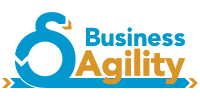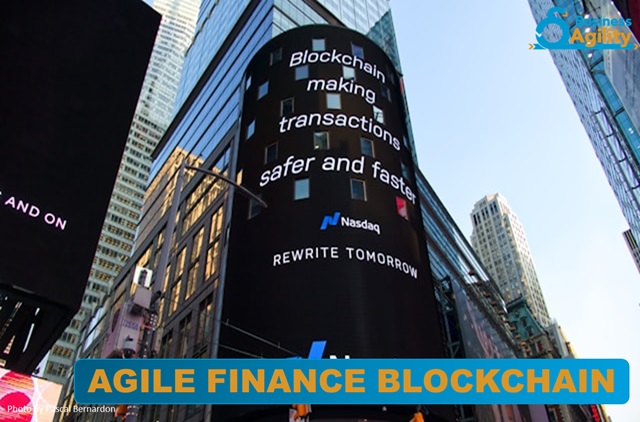Intégrer la blockchain dans les contrats de finance agile
Sur la base des applications observées de la blockchain par les quatre grands cabinets comptables (Zhang et al., 2020), nous résumons les pratiques et expliquons comment les ressources financières agiles pourraient mettre en œuvre une nouvelle technologie comme la blockchain dans leurs opérations.
Les quatre grands cabinets comptables utilisent la blockchain de différentes manières
Deloitte : Ils ont des laboratoires dans le monde entier qui développent des solutions pour diverses industries, du suivi des chaînes d'approvisionnement alimentaire à la détection des fraudes dans le secteur bancaire. Ils ont créé plus de 30 modèles de blockchain pour des domaines tels que la banque numérique, le financement du commerce et les programmes de fidélisation. https://www2.deloitte.com/
PwC : La solution de validation de la blockchain de PwC combine l'analyse des risques avec un logiciel d'audit. Elle travaille avec les principales bourses et les fournisseurs de portefeuilles numériques, ce qui permet un suivi en temps réel des transactions. https://www.pwc.com/
EY : Le Blockchain Analyzer d'EY vérifie les transactions en crypto-monnaies, en prenant en charge des examens complets. Développé avec Guardtime et Microsoft, il automatise des processus tels que la création de contrats d'assurance et la numérisation des règles de négociation à l'aide de contrats intelligents. https://www.ey.com/
KPMG : KPMG, en collaboration avec Microsoft, a créé les Blockchain Nodes pour démontrer l'utilité de la blockchain pour les entreprises. Leur outil Digital Ledger Services aide les sociétés financières à appliquer la blockchain pour rationaliser les opérations et sécuriser les transactions. https://kpmg.com/
Similitudes :
- Toutes les entreprises sont activement engagées dans des activités liées à la blockchain.
- Elles collaborent avec des partenaires technologiques pour améliorer leurs solutions blockchain.
- Chaque entreprise a développé des outils ou des solutions spécifiques pour traiter différents aspects des applications de la blockchain.
Différences :
- Deloitte est présent dans le monde entier et possède des laboratoires dans de nombreux endroits, tandis que les emplacements de PwC ne sont pas précisés.
- L'orientation sectorielle varie : Deloitte et PwC offrent un large éventail, EY se concentre sur l'audit et KPMG se montre utile dans des secteurs spécifiques tels que la santé.
- Les types de modèles et d'applications de la blockchain diffèrent d'une entreprise à l'autre, ce qui reflète la diversité des domaines d'expertise et des centres d'intérêt.
- Les collaborations et les partenariats diffèrent également, comme les laboratoires mondiaux de Deloitte, le travail de PwC avec les bourses, les collaborations d'EY avec Guardtime et Microsoft, et le partenariat de KPMG avec Microsoft pour les nœuds de blockchain.
ExtrAgilité dans la finance
Du point de vue de la finance agile, l'extragilité (Hormaza Dow, 2022), symbolise une expertise en forme de Φ qui transcende le champ d'application conventionnel des méthodologies agiles. S'écartant de l'IntrAgilité axée sur l'interne et de l'InterAgilité interfonctionnelle, l'Extragilité adopte une approche globale qui intègre la responsabilité sociale des entreprises (RSE), la gouvernance environnementale, sociale et d'entreprise (ESG), et les Objectifs de développement durable (ODD) dans le cadre stratégique financier. Ce changement de paradigme encourage les stratégies et les opérations financières à aller au-delà de la norme, en intégrant des considérations sociétales et environnementales plus larges. L'extragilité souligne l'importance de favoriser la citoyenneté d'entreprise, de prendre des décisions financières éthiques et de s'orienter vers un avenir durable sans compromettre l'agilité des opérations commerciales. Elle souligne l'idée que le domaine de la finance agile ne devrait pas seulement optimiser les processus internes, mais aussi contribuer de manière proactive à l'impact sociétal et environnemental d'une organisation, renforçant ainsi le lien essentiel entre l'agilité financière et le développement durable.
La finance agile met en œuvre de nouvelles technologies comme la blockchain
1. Évaluation des besoins et planification :
Rôle de l'équipe Agile Finance : Diriger l'identification des processus financiers adaptés à l'intégration de la blockchain. Collaborer avec toutes les parties prenantes pour bien comprendre leurs besoins et objectifs spécifiques. Contribuer à la création d'une feuille de route pour la mise en œuvre de la blockchain afin de s'aligner sur les principes d'Agile Finance.
2. Alignement des parties prenantes et éducation :
Rôle de l'équipe Agile Finance : Animer des sessions éducatives et des ateliers pour s'assurer que les parties prenantes, y compris les experts financiers et les décideurs, comprennent les avantages de la blockchain. S'engager dans une communication ouverte pour aligner tout le monde sur la vision de la finance agile et de la blockchain.
3. Évaluation de l'infrastructure technologique :
Rôle de l'équipe Agile Finance : Collaborer avec les équipes informatiques pour évaluer l'agilité de l'infrastructure technologique actuelle et sa compatibilité avec la blockchain. Fournir des informations sur la façon dont la blockchain s'aligne sur les exigences de la finance agile.
4. Conception de contrats intelligents :
Rôle de l'équipe Agile Finance : Travailler en étroite collaboration avec les développeurs de blockchain et les experts juridiques pour concevoir des contrats intelligents. S'assurer que les contrats reflètent les principes Agile, en mettant l'accent sur la flexibilité, l'adaptabilité et les structures mutuellement bénéfiques.
5. Intégration avec les systèmes financiers :
Rôle de l'équipe Agile Finance : Superviser l'intégration transparente de la blockchain dans les systèmes financiers. Collaborer avec les équipes informatiques pour garantir une connexion et une interopérabilité fluides.
6. Mesures de sécurité et conformité :
Rôle de l'équipe Agile Finance : Collaborer avec les experts en cybersécurité de l'organisation afin de prioriser les mesures de sécurité. Assurer la conformité avec les réglementations financières pertinentes en fournissant une expertise sur l'application des pratiques de finance agile dans un environnement réglementé.
7. Mise en œuvre progressive :
Rôle de l'équipe financière agile : Plaider en faveur d'une approche progressive de la mise en œuvre, en se concentrant sur des processus ou des projets financiers spécifiques. Contrôler et analyser l'impact, en fournissant un retour d'information pour une amélioration continue.
8. Analyse en temps réel et indicateurs clés de performance :
Rôle de l'équipe Agile Finance : Collaborer avec des experts en analyse de données pour définir des outils d'analyse en temps réel et des indicateurs clés de performance. Veiller à ce que ces mesures soient conformes aux principes de la finance agile et fournissent des informations utiles sur les performances.
9. Contrats agiles et mécanismes de retour d'information :
Rôle de l'équipe Agile Finance : Diriger le développement de structures contractuelles agiles au sein de la blockchain. Établir des boucles de rétroaction pour promouvoir l'amélioration continue et l'adaptabilité.
10. Intégration des plateformes de collaboration :
Rôle de l'équipe Agile Finance : Collaborer avec les équipes informatiques pour intégrer la blockchain aux plateformes collaboratives. Garantir un environnement convivial et collaboratif pour la création et la négociation de contrats conjoints.
11. Formation et apprentissage continu :
Rôle de l'équipe Agile Finance : Développer des programmes de formation pour les équipes impliquées dans la mise en œuvre de la blockchain. Favoriser une culture d'apprentissage continu, en mettant l'accent sur l'état d'esprit de la finance agile et sur l'évolution des fonctionnalités de la blockchain.
12. Suivi, évaluation et optimisation :
Rôle de l'équipe Agile Finance : Diriger le suivi et l'évaluation des processus financiers intégrés à la blockchain. Utiliser le retour d'information pour optimiser les mises en œuvre, en veillant à ce qu'elles s'alignent sur les objectifs d'Agile Finance et les besoins de l'entreprise.
Sources :
T. Hormaza Dow, (2022, avril). "Étude structurelle du site Web comparatif et proposition d'intragilité, d'interagilité et d'extragilité en tant que cadre contextuel pour guider une voie d'agilité commerciale adaptative" [Projet de MBA]. Université Laval, Faculté des sciences de l'administration (FSA) Québec, Canada.
Y. Zhang, F. Xiong, Y. Xie, X. Fan et H. Gu, " The Impact of Artificial Intelligence and Blockchain on the Accounting Profession ", in IEEE Access, vol. 8, pp. 110461-110477, 2020, doi : 10.1109/ACCESS.2020.3000505
Photo par Pascal Bernardon
Droits d'auteur :
Aucune revendication n'est faite concernant les marques, le contenu et les droits d'auteur respectifs des quatre entreprises présentées, ainsi que les sources et les sections de citation de ce billet.

